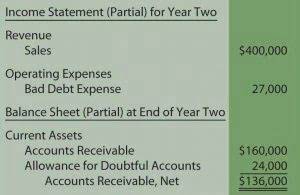Top 15 Small Business and Startup Accounting Tips
Content
- Accounting Seed Announces Strategic Partnership with Cloudteam Company
- Essential Accounting Tips For Startups
- A business bank account that’s free, easy to open, and helps you start doing what you love.
- Do I need accounts from day one of my startup?
- Top 15 Small Business and Startup Accounting Tips
- Outsourced Bookkeeping Service: Get Efficiency and Reliability
- Ask Accounting Seed for a Demo
- Overview: What Is Small Business Accounting?
The best startups use a cloud-based accounting software like QuickBooks Online to do basic bookkeeping, which includes tracking income, expenses, and other financial transactions. They may DIY their books, but should work with a CPA firm to file taxes and ensure state and local tax compliance. VC-backed businesses typically choose to outsource their bookkeeping and tax preparation/compliance to experienced CPA firms.
As a new business owner, accounting is challenging, but you can take some simple steps to stay organised and ensure that your accounting books are accurate. Starting a new business can be a daunting task, especially when it comes to accounting. Many new businesses are afraid to ask for help from an accountant or bookkeeper, but this is actually the best thing to do in order to keep your books in order. Be sure to keep track of all of your expenses throughout the year so you have everything ready when it comes time to file your taxes. And if you’re not sure whether or not an expense is tax-deductible, be sure to consult with a tax professional. Your sales should include the money you plan to make from your products or services.
Accounting Seed Announces Strategic Partnership with Cloudteam Company
It is impossible to run a household smoothly if you have a carefree attitude towards tracking expenses, leave out running a business with the same approach. Open a separate bank account https://www.bookstime.com/articles/what-is-a-sales-invoice for your business if you haven’t done it already. If you are an entrepreneur who is not a numbers person, then going through endless financial documents will seem dreadful to you.
- These small business accounting tips will help you improve your chances of business success by being better at financial management.
- Both bookkeeping and accounting complement each other and are vital to every organization’s success.
- It might be easy to be put off from tackling accounting during the early days of your business.
- If you are running a SaaS startup, and you sell a 12-month contract to a client for $120,000 in January, on a cash basis you record $120,000 and that’s it.
- As your allies in business, vendors and suppliers majorly affect the success of your startup.
- Accounting is the process of accurately recording and interpreting a business’ financial data.
It would be best to manage your business books by yourself in such scenarios. Moreover, you will glean insights into how the money flows in and out of your business. Make sure to stay on top of tax deadlines and keep track of important tax documents, such as 1099 forms and W-2s. You can bookkeeping for startups also consider hiring a tax professional to help you navigate the complex tax system. One of the most important things you can do as a startup is to keep track of your expenses. This can help you identify where you’re spending money and determine whether you need to adjust your budget.
Essential Accounting Tips For Startups
Instead, they are small enough to DIY their accounting, with the exception of filing a tax return – using a legit CPA for a startup tax return is a very, very good idea. Make your life easier by using a unified accounting project management solution to track expenses, generate custom reports, and send invoices automatically. As per Gov.uk, small businesses and sole traders that have revenue or turnover of less than £150,000 per year can use cash accounting. Businesses can change from cash to accrual accounting during this stage and once they grow beyond this figure.
This is where outsourced accounting systems and services (OASyS) and CFO Support Services come in. The importance of controls in the accounting process cannot be understated. A control environment is needed to ensure the company’s resources are properly and securely handled. Controls ensure order to cash and purchase to pay cycles from initiation to processing, to posting and that collection/payment are properly implemented.


